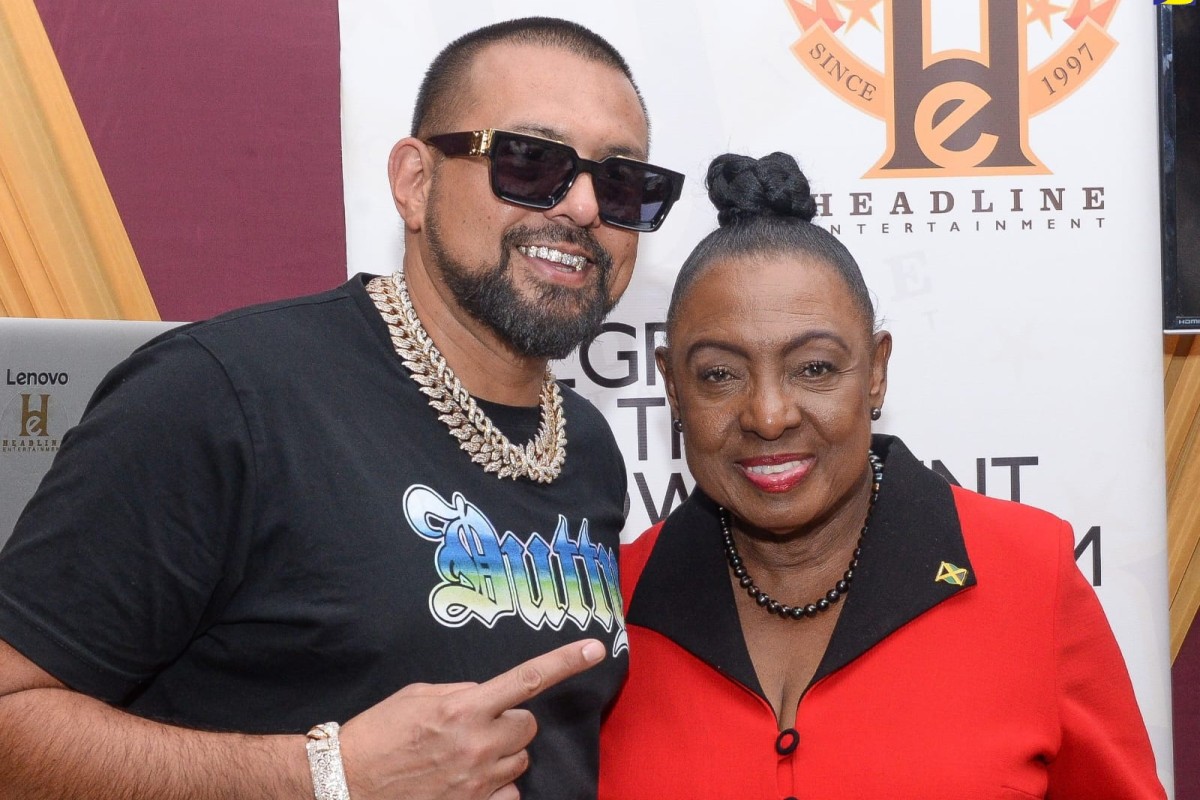Grange Urges Musicians To Make Use Of Entertainment E-Registry

Entertainment Minister Olivia “Babsy” Grange has urged members of the music and entertainment fraternity to make use of the Ministry of Culture, Gender, Entertainment and Sport’s (MCGES) National Registry of Entertainment Practitioners e-registry.
During Tuesday’s Visa and Immigration Symposium staged by the Jamaica Cultural Development Commission (JCDC), to commemorate Reggae Month, Grange emphasized that her Ministry’s e-registry, which is the database used to verify entertainment, cultural, and creative industry practitioners, is an important tool which was established by cabinet decision years ago and was “here to benefit the industry.”
“I want to use the opportunity also to say to you all we have something we call an e-registry – an entertainment registry… we want all entertainers to register on the e-registry. There are many benefits; there are opportunities for you to get waivers on your equipment coming in, your musical instruments, your technical stuff,” Grange, who is a former manager for Bounty Killer, Patra and Shabba Ranks, said.
“If there are opportunities for funding, if you’re on the e-registry you will be in a position to get the support. We provide tour support. We also assist like we’re doing today, to facilitate this kind of exchange,” the Minister added.
Lamenting the fact that the entertainment industry was seen as highly unstructured, the former Specs/Shang executive, said that with the e-registry being a mechanism to legitimise the work and authenticity of practitioners, registration is mandatory in order for industry members to reap benefits.
Minister Grange said that entertainers who have not yet registered were being given additional time to get themselves on the e-registry and cautioned them to take advantage immediately.
“But I’m saying to you many of you are not yet on the e-registry. We’re giving you a very short time to get on board, because if you call or you write, and we check the registry and you’re not registered, then you’re on your own, because the e-registry is an opportunity for you to be part of a structure,” she said.
“Too long the music industry has been very – they refer to it as informal – we want to help you to be formal we want to help you to be structured. Music is not just you go out there and play, but it’s also a business. So those who have ears, let them hear,” Grange added.
The National Registry of Entertainment Practitioners was established in 2014, to be a single repository of information on culture/creative industries practitioners, including their key profiles and contact information as well as to facilitate research and data collection for the benefit of the industry.
Among the aims was to offer tax relief under a fiscal incentives regime, where tools of trade, such as instruments, were made exempt from import duties.
The registry of persons engaged in the entertainment industry was first conceived within the context of the Draft Entertainment Industry Encouragement Act (EIEA) of 2005, according to the MCGES.
According to the Entertainment Ministry, registration facilitates access to tools of trade under the Fiscal Incentives Act of 2014, free movement of skills under the CARICOM Single Market & Economy (CSME) and “establishes the bona fide of creative practitioners in their particular field of endeavour”.
All Jamaican practitioners in the entertainment and creative industries covering Film, Fashion, Visual and Performing Arts, Music and Dance are qualified to register.
The Reggae Month Visa Immigration Symposium series at which Grange served as keynote speaker, tackled enduring concerns among entertainment professionals seeking to travel abroad and further refine their skills in global markets.
Throughout the month, various speakers and representatives from the Ministry of Foreign Affairs and Foreign Trade, as well as the United States, Spanish, German, and Belgian Embassies, and the British and Canadian High Commissions, delivered presentations and engaged in discussions relating to their respective visa and work permit application procedures.
